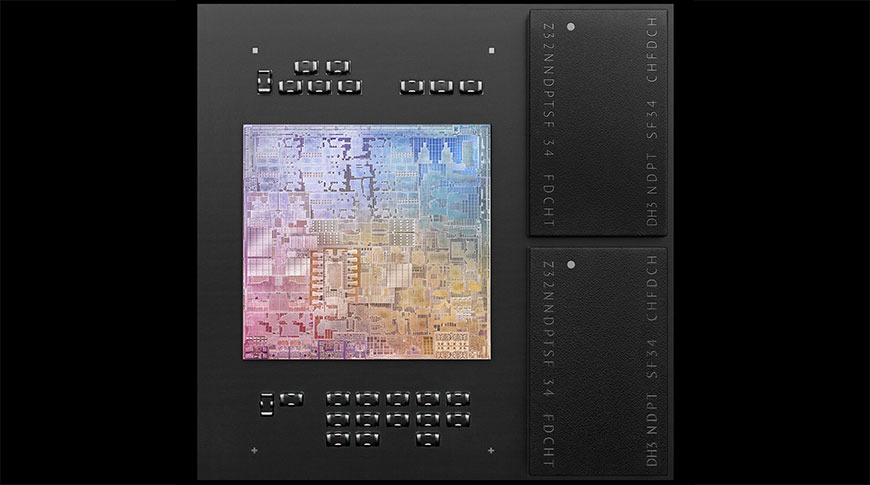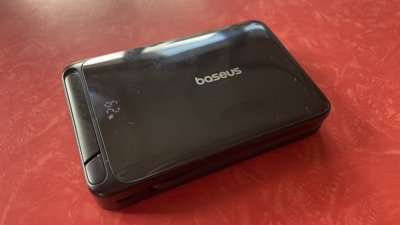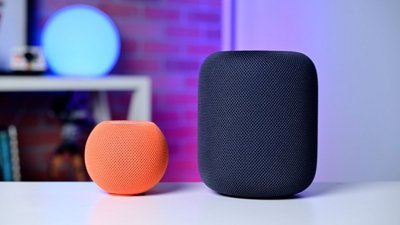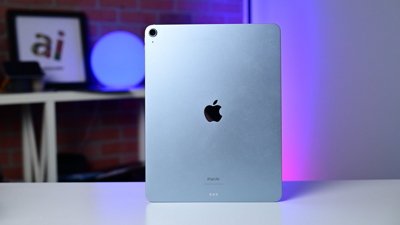With Apple's first Apple silicon Macs due to arrive in the coming days, early benchmark testing on Wednesday reveals the company's new M1 chip outperforms its top Intel-based machines.
A Geekbench test result from a "MacBookAir10,1," the designation of Apple's just-announced MacBook Air with M1 chip, reveals a single-core score of 1687 and a multi-core score of 7433. The 8-core processor was clocked at 3.2 GHz.
By comparison, aggregate scores compiled by the benchmarking site show the M1 blowing past all mobile Macs, all current Mac mini configurations and a healthy portion of iMac specs. That includes the late-2019 MacBook Pro with Intel Core i9-9980HK processor clocked at 2.4 GHz.
According to the unverified results, the MacBook Air testbed was equipped with 8GB of RAM and ran macOS 11.0.1, the forthcoming next-generation operating system due for wide release on Thursday.
In introducing the M1 on Tuesday, Apple touted its first in house-designed Mac chip as a breakthrough for desktop processing. With leading performance per watt and extreme power efficiency, the silicon is expected to shake up the semiconductor market.
Apple has failed to produce exact specifications for its first ARM-based Mac chip design, but does note the silicon is up to two times faster than competing PC processors while sipping power. M1's integrated graphics module also offers up to two times the performance as compared to leading solutions, though comprehensive graphics benchmarks have yet to surface.
In addition to raw processing power, M1 incorporates custom Apple technology like a 16-core Neural Engine for machine learning computations, specialized image signal processor, and a unified memory subsystem. It remains to be seen whether the latter will prove a detriment to typically RAM-intensive operations.
The MacBook Air, 13-inch MacBook Pro and Mac mini are the first machines to benefit from the M1. Orders for the new hardware went live yesterday, with shipments due to arrive on Friday.
 Mikey Campbell
Mikey Campbell








 Thomas Sibilly
Thomas Sibilly
 Marko Zivkovic
Marko Zivkovic
 Andrew O'Hara
Andrew O'Hara
 Amber Neely
Amber Neely
 William Gallagher
William Gallagher
 Christine McKee
Christine McKee
 Andrew Orr
Andrew Orr


-xl-m.jpg)





78 Comments
I wonder how much difference we’ll see for the Air vs. the Pro.
I assume it’s just the long-term performance.
DuhSesame
I agree, but this is still very impressive. Something like Cinebench will be better for judging the difference in sustained CPU tasks.
Why would a unified memory system be a detriment to memory intensive operations?
All right. I will eat crow. I have long claimed that there was no way that Apple Silicon would match the Core i7 at launch and would probably be in line with the Core i3 or at best Core i5. I was wrong. I shall go sit in the corner with my dunce cap on now.
But while on my way to the corner I will protest:
Apple did not reach this performance with the 4 and 6 core iPhone and iPad chips as people were claiming previously. Apple only reached this performance with an octacore chip that was specifically designed for use in personal computers - not mobile devices - that requires more cores, more power and dissipate more heat. We have always known that this was possible, as modern (meaning a ARM Holdings design base and not the Sun Sparc and other early RISC servers that go back to the 1980s) Linux-based ARM workstations and servers have existed since at least 2011 (the year after the A4 was released). Ubuntu has had official ARM releases since 2012, and HP - the venerable Wintel manufacturer - has been selling them to data centers since 2014.
So I was absolutely right about Apple not being able to build a MacBook Pro or iMac with a 6 core chip that had 128kb/8MB caches (the M1 is octacore with 192kb/12MB caches). As lots of people on this site and elsewhere were indeed claiming that the 4 and 6 core low power/low heat iPhone chips could absolutely be put in a MacBook Pro and work as good or better ... yeah those people were as wrong as I was and even more so.
Now in the corner of shame I go, sucking my thumb in the process. But you folks who claimed that this would have been possible with the iPhone chips need to go to corners of their own.